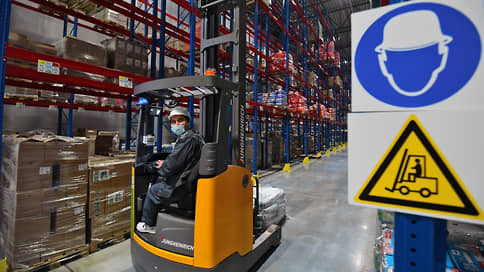RNPK has prepared the final version of the conditions and tariffs for reinsurance of warehouses and inventory items
[ad_1]

The Russian National Reinsurance Company (RNRC) has approved new conditions for reinsurance of warehouse risks. Market participants are talking about an increase in tariffs several times, believing that the rise in prices will inevitably be passed on to clients – owners and tenants of warehouse premises.
RNPK has prepared the final version of the conditions and tariffs for reinsurance of warehouses and inventory (the document is available to Kommersant). Thus, RNPK introduced additional exclusions from coverage, which included losses resulting from violations of fire and industrial safety rules, the use of household heating appliances not provided for in the documentation, and self-installation of electrical wiring.
At the same time, RNPK raised tariffs for warehouse risks. The cost of reinsurance of a warehouse, including fit-out and engineering equipment, will be 0.11% of the insured amount, and inventory – 0.23%.
According to Kommersant’s interlocutor at a large insurance company, in June RNPK presented only theses, and the new conditions were only formalized in document form now: in particular, the reinsurer worked out the clauses and removed vague wording.
RNPK has tightened its conditions due to the increasing frequency of insurance claims. “For any obligatory contract, pricing is always based on the structure of the portfolio and statistics on the completion of the contract over the past few years, using probabilistic scenarios for the development of such a portfolio and its unprofitability,” explains Elena Orlova, head of the sector for working with corporate clients of the insurance broker Nobilis. .—Over the past year, there has been an unprecedented number of large losses in the segment of non-industrial insurance objects.”
In particular, in August 2022, a large-scale fire occurred in the warehouse of the Ozon marketplace in Istra, the damage from which was estimated at almost 11 billion rubles. At the end of last year, a fire occurred in the Mega Khimki shopping center, where the damage amounted to a record 20–30 billion rubles, according to VSS estimates (see Kommersant, December 9, 2022).
The RNPK declined to comment.
According to market participants, exclusions from coverage essentially give RNPK the opportunity to refuse payment for almost any item. The cause of all fires, with the exception of those rare cases when, for example, video surveillance cameras record the fact of arson, are violations of certain safety standards, in particular, for firefighters, says an interlocutor at one of the insurance companies.
Market participants call RNPK prices inflated “three times or more,” noting that until now the average tariffs for warehouse risks in the market were less than 0.1%.
A large share of warehouses is pledged and insured at the request of banks, which are unlikely to accept new exceptions; in a similar situation there will be tenants of warehouse premises who cannot influence the actions of the owner, explains Evgeniy Ilchenko, director of the underwriting and reinsurance department at Absolut Insurance. According to him, for such clients it remains possible to conclude an agreement at increased tariffs: for those facilities where the level of security does not meet the new requirements, prices can rise two to three times.
For huge logistics centers, which may contain goods worth tens of billions of rubles, insurance at such rates will be very difficult for the budget, says Kommersant’s interlocutor at the insurance company. It will be more profitable for large logistics complexes to bring facilities into proper condition, since it is likely that insurers will not want to enter into contracts for high-risk facilities even at increased rates, adds Evgeniy Ilchenko.
Many warehouse tenants will begin to demand from owners the installation of additional fire safety systems and technical verification of existing systems, which may lead to an increase in the cost of renting warehouses, says Denis Titov, deputy general director of the AST insurance consultant for property and liability insurance.
The players have no legal mechanisms to influence the situation: since voluntary property insurance contracts are not public, there is nothing illegal in introducing into them the conditions recommended by RNPC, or in increasing the insurance tariff and contribution, says Kirill Krasnov, general director of Benefit Litigation Law Firm. Meanwhile, market participants are confident that innovations will only worsen insurance fraud, including through fires. For those who “must burn out,” one of Kommersant’s interlocutors emphasizes, it doesn’t matter at what rate they are insured.
[ad_2]
Source link





